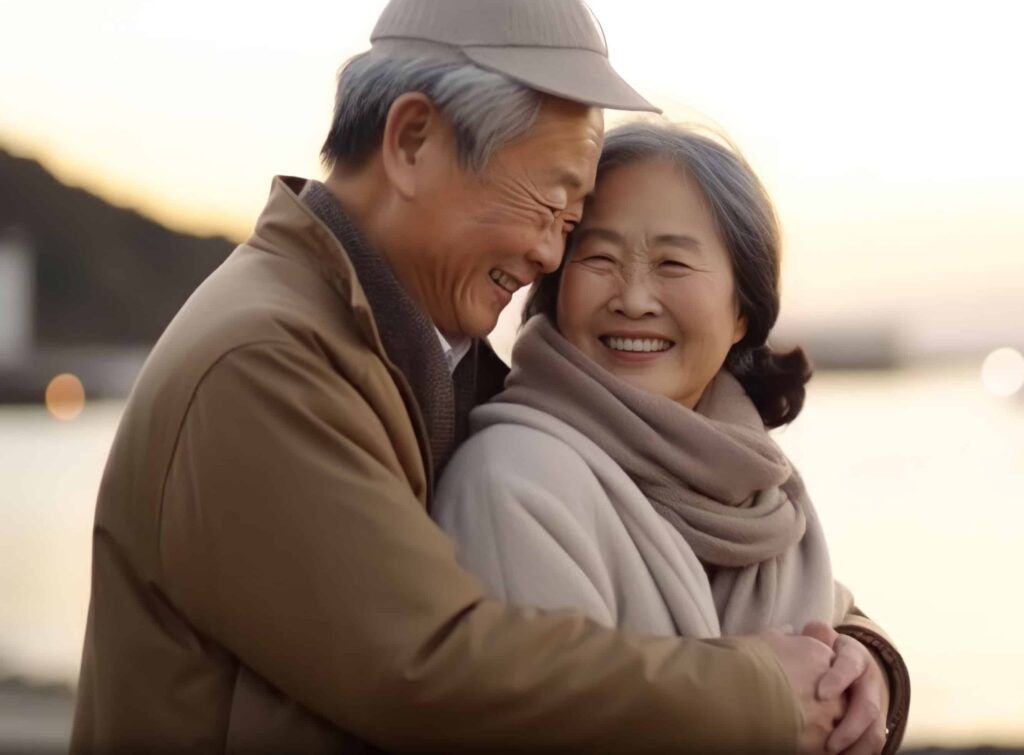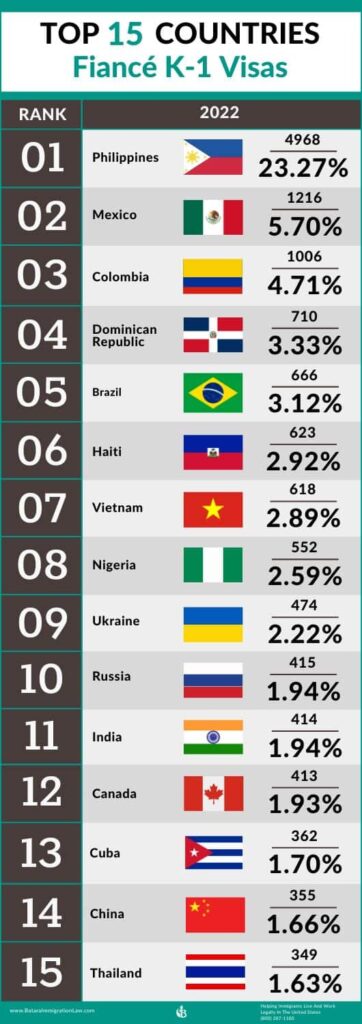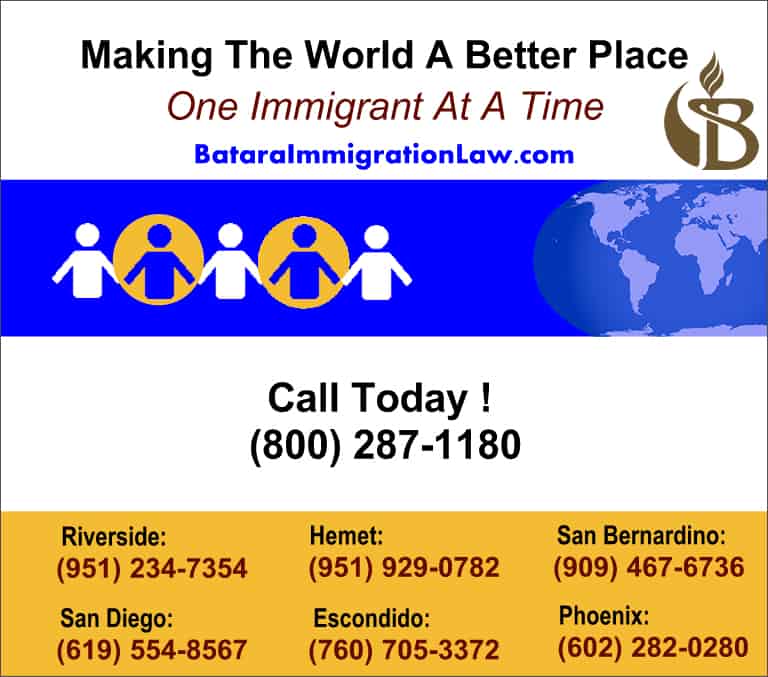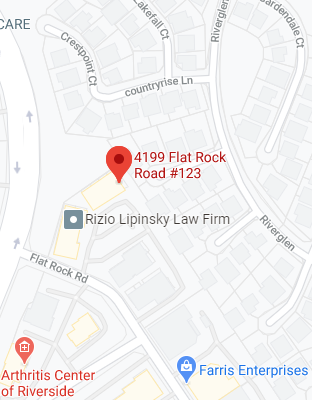
Shortly after President Biden took office, the Department of State announced the processing of fiancé visa petitions would be fully resumed.
As a K-1 visa lawyer who has helped U.S. citizens bring their spouses-to-be to the United States, I applauded the government’s policy revitalization.
This ended a four year effort to dismantle family immigration programs under the pejorative guise of eliminating illegitimate chain migration schemes.
The Biden Administration’s action was a breadth of relief to immigrants across the globe who feared bringing their boyfriend or girlfriend on a pre-marital basis legally to the United States via K-1 visas was on its deathbed.
Immigration Without Boundaries: Bringing Your Boyfriend Or Girlfriend To The U.S.
In 2019, a total of 35,881 K-1 visas were approved.
Nearly 1 of 5 of those approved were for Filipino immigrants. The second largest contingent, Mexico, accounts for under 6% of the overall approval total.
In 2020, due to the combination of COVID-19 and the immigrant ban measures enacted by the Trump Administration, the number of approvals suffered a sharp decline. The number of approved fiancé visa petitions dropped over 50%.
Only 16,849 approvals were issued in 2020.
The following year, 2021, the total rose to 19,218.
In 2022, the amount of approved K-1 visas again increased, up to 21,351. This figure is still significantly lower than 2019, the last pre-COVID year.
But it shows that the total number of approvals is on the rebound, on an upward trajectory.
K-1 Visa Approvals By Country
Over the past decade, the 15 countries with the largest amount of fiancé visa approvals has remained relatively consistent. Their annual totals have fluctuated, and their yearly rankings have varied only slightly.

The Philippines remains the country with the most approved K-1 visas, accounting for over 23% of the total granted in 2022.
- Philippine Islands
- Vietnam
- Mexico
- United Kingdom
- Dominican Republic
- China
- Brazil
- Colombia
- Ukraine
- Thailand
- Russia
- Canada
- India
- Haiti
- Nigeria
The fifteen countries with the largest number of approvals has not changed from 2019.
However, applicants from eight different countries have increased over the past two years and may supplant one of the top 15 nations in coming years: Cuba, Iran, Iraq, Jamaica, Japan, Laos, Peru, and South Korea.
Let’s move briefly to a related question.
How Many Fiancé Visas Are Denied?
Obtaining an accurate number on how many K-1 visa applications are denied is nearly impossible.
The government’s statistics only provides a general list of reasons for denials. However, rejections and denials are not clearly distinguished.
Fiancé visa petitions are processed in two main stages.
During the first stage, a petition is reviewed to ensure all of the requisite information, supporting documents, and proper filing fees are included.
If it falls short for such reasons, your application will be deemed “rejected”.
At the second stage, a petition is evaluated to determine legal eligibility for a fiancé visa. This is where issues such as an immigrant’s previous visa history and the couple’s previous marriages and cultural commonalities are more thoroughly assessed.
Failure here results in a “denial”.
According to government statistics, approximately 40% of K-1 visa applications are rejected at the first stage. Many are for mistakes which can be fixed and overcome.
The percentage of petitions that survive such first stage rejections and move onto the second stage is not known.
Nor is the number of cases denied at the second stage for more substantive legal issues a publicly disclosed figure.
Recommended Reading:
Ready to take a serious and honest look at the strengths and weaknesses of your immigration case? Let’s get started with a personalized strategy and planning session . . .
Here's How It Works
1
Call Our Office
Immigration law doesn’t have to be confusing. You don’t have to live in fear of being deported and separated from your family. A comprehensive 30-minute Strategy And Planning Session will take the stress out of not knowing your options first-hand.
2
Meet With Carlos
Every case is unique. We refuse to take cookie-cutter approaches to your case. After we discuss the ins and outs of your immigration and family situation, Carlos will outline your chances for success and how to overcome obstacles standing in your way.
3
No Pressure - No False
Promises
Hiring a lawyer is a big investment, and we will not pressure you to hire us or push you into a plan you don’t understand. If we cannot help you, we will tell you. We will not take your case, unless we believe we can make a difference for you and your family.




